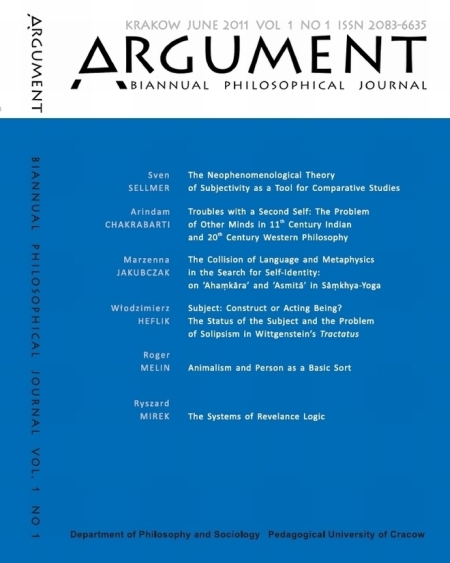The Collision of Language and Metaphysics in the Search for Self-Identity: on ahamkara and asmita in Samkhya-Yoga
Słowa kluczowe:
ahamkara, asmita, ego, Hindu philosophy, Indian philosophy, language, grammar and philosophy, liberation, metaphysics, paralogism, Patanjali, Samkhya, Sankhya, self, self-knowledge, subjectivity, YogaAbstrakt
The author of this paper discusses some major points vital for two classical Indian schools of philosophy: (1) a significant feature of linguistic analysis in the Yoga tradition; (2) the role of the religious practice (iśvara-pranidhana) in the search for true self-identity in Samkhya and Yoga darśanas with special reference to their gnoseological purposes; and (3) some possible readings of ‘ahamkara’ and ‘asmita’ displayed in the context of Samkhya-Yoga phenomenology and metaphysics. The collision of language and metaphysics refers to the risk of paralogism caused by the common linguistic procedures making the subject define its identity within the semantic order (i.e. verbal conventions and grammatical rules) which does not reflect the actual metaphysical situation of the self, though it determines one’s self-understanding in the empirical sense. Whereas, Samkhya-Yoga aims at recognizing, reorganizing and, finally, going beyond these procedures regarded as the obstacles on the path towards self-knowledge and liberation form metaphysical ignorance.


